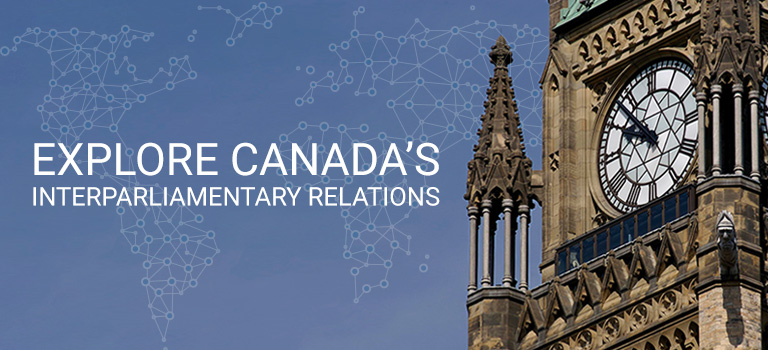Interparliamentary Activities and Reports
Refine your search
Results: 631 - 640 of 1093
Sorted in reverse chronological order
UIPU
Canadian Group of the Inter-Parliamentary Union
March 7, 2022
Meeting of the Steering Committee of the 12+ Group
By videoconference
Canadian Group of the Inter-Parliamentary Union (UIPU)
On March 7, 2022, the Hon. Marilou McPhedran, Senator, attended a meeting of the Steering Committee of the Twelve Plus Group in her capacity as a Bureau member of the Inter-Parliamentary Union’s (IPU) Sustainable Development Committee. Participants discussed several matters, including the Russian invasion of Ukraine and the group’s solidarity with Ukrainian parliamentarians. They also reviewed the Group’s financial matters and questions related to IPU membership. During discussions about the programme of activities for the 144th Assembly of the IPU, Senator McPhedran noted that the Canadian Group of the IPU (UIPU) had submitted proposed amendments to both the draft resolution on reframing peace processes and the draft resolution on leveraging information and communication technology in education. Participants were also briefed on key issues discussed by the Executive Committee of the IPU, including the organization’s relationship with the United Nations.
CAPF
Canadian Branch of the Assemblée parlementaire de la Francophonie
March 7, 2022
Annual General Meeting
By videoconference
Canadian Branch of the "Assemblée parlementaire de la Francophonie" (CAPF)
3:30 p.m.
To be eligible to vote at the AGM the deadline for membership for this association is 7 days before the meeting.
CAPF
Canadian Branch of the Assemblée parlementaire de la Francophonie
SECO
Canadian Delegation to the Organization for Security and Co-operation in Europe Parliamentary Assembly
March 2, 2022
OSCE Parliamentary Assembly Event "Implementation of the Sustainable Development Goals in the OSCE region: a parliamentary perspective"
By videoconference
Canadian Delegation to the Organization for Security and Co-operation in Europe Parliamentary Assembly (SECO)
The Organization for Security and Co-operation in Europe Parliamentary Assembly (OSCE PA) held a virtual event aimed at bringing a parliamentary perspective to the implementation of the Sustainable Development Goals in the OSCE Region. The event was moderated by OSCE PA High-Level Expert, Ambassador Lamberto Zannier. It was held in the context of the OSCE PA’s Call for Action – Helsinki+50 Process and its efforts to advance dialogue and promote sustainable peace in the OSCE region. The Canadian Delegation to the OSCE PA was represented by Senators Marilou McPhedran and Lucie Moncion. During the event, Senator McPhedran spoke about the Treaty on the Prohibition on Nuclear Weapons in the context of the Russian invasion of Ukraine. She further reflected on the link between the 2030 Agenda on Sustainable Development and the acute threat that nuclear weapons pose to the world.
CANA
Canadian NATO Parliamentary Association
CAAF
Canada-Africa Parliamentary Association
February 25, 2022
Annual General Meeting
By videoconference
Canada-Africa Parliamentary Association (CAAF)
11:00 a.m.
To be eligible to vote at the AGM the deadline for membership for this association is 7 days before the meeting.
CCOM
Canadian Branch of the Commonwealth Parliamentary Association
CCOM
Canadian Branch of the Commonwealth Parliamentary Association
SECO
Canadian Delegation to the Organization for Security and Co-operation in Europe Parliamentary Assembly
CEUS
Canada-United States Inter-Parliamentary Group
Results: 631 - 640 of 1093 — Page: 64 of 110


